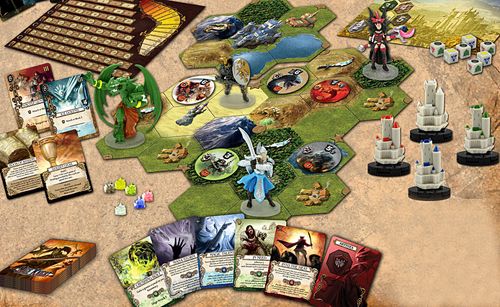
One day, this lovely Blue Yeti will be mine.
I’ve come to really enjoy podcasts. They help pass the time at the office, they inform and entertain with fresh content on a regular basis, and they’ve even replaced the music I used to listen to while running. I’ve been slowly expanding the amount I listen to on a regular basis, and I’d like to share some of the highlights with you.
Welcome to Night Vale
The brainchild of two authors at Commonplace Books, Welcome to Night Vale is evocative of old-school radio dramas like Suspense or Inner Sanctum Mystery, using description, sound, and evocative music to set the scene and spark imaginations rather than relying on sight gimmicks. The sonorous voice of Cecil Baldwin narrates the goings-on in the quiet desert town of Night Vale, where the odd is everywhere and things are usually not what they seem. Sometimes they are. Most times, they’re not. While it might not be for everyone, there’s something delightfully old-fashioned about Night Vale that keeps me coming back every two weeks.
Hello Internet
The description of Hello Internet is extremely simple: “Conversations between CGP Grey and Brady Haran“. Given the nature of their individual YouTube channels, it should be no surprise that this is perhaps the most informative and thought-provoking podcast I currently listen to. Their discussions are intelligent, well-researched, and balanced, and their personalities make it entertaining. I actually feel myself getting smarter listening to these guys. Highly recommended.
9Bit Podcast
I listen to a few video gaming podcasts, like The Co-Optional Podcast and Daft Souls, but one you might not have heard of is the 9Bit Podcast. Described as ‘a podcast about games for gamers’, it does a good job of providing a balanced review of video games, engaging in discussions of gaming news, and keeping listener interest with interplay between the hosts. It’s a smaller production, but it’s a great one.
Shut Up & Sit Down
Ah, Shut Up & Sit Down. Great videos, great reviews, and now a great podcast, all about board games. Paul and Quinns have some interesting viewpoints on this hobby, and are more than willing to share them with an audience. I like the podcast because the discussions are far less rehearsed and, in a way, more informative than the video reviews. Like their videos, the podcast has high production values and are just as entertaining as they are informative.
Terminal7
I’m a big fan of NetRunner, and I’m looking forward to finding more players. Until I do, the guys at Terminal7 are keeping me up to speed on what’s happening in this exciting revival of the cyberpunk living card game. They have great guest stars, like Quinns and Leigh Alexander, and they discuss strategies and individual cards with gusto and intelligence, exploring all sorts of combinations and tactics that often make them clearly enthusiastic. While somewhat of a niche podcast, it’s still a great one.
More?
I’m looking to expand my collection of podcast subscriptions. So far I have yet to find one I don’t like. With high-quality microphones becoming more affordable, Internet connections allowing people to contribute without being in the same room, and the ease of posting things to the Internet, it seems like more and more of these shows are emerging, and some of them are absolutely worth your time.
Hell, given the success of some of these podcasts, I may get back around to starting one of my own.



